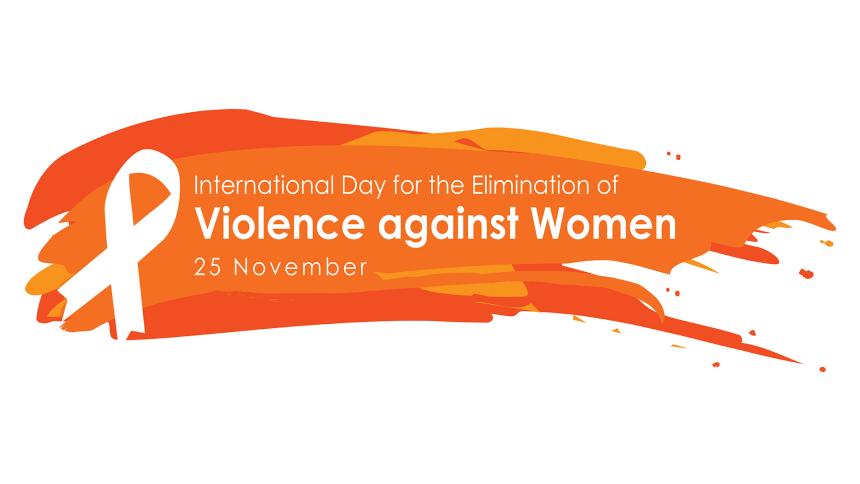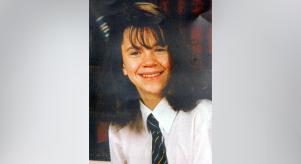
Ending gender-based violence: The International Day For the Elimination of Violence Against Women 2025
Taking place on Tuesday, 25th November 2025, the International Day for the Elimination of Violence Against Women was established by the United Nations to draw attention to one of the world’s most urgent issues.
As defined by the UN General Assembly, violence against women is ‘any act of gender-based violence that results in, or is likely to result in, physical, sexual or psychological harm or suffering to women, including threats of such acts, coercion or arbitrary deprivation of liberty, whether occurring in public or in private life.’
But what was the brutal historical crime that inspired the creation of this annual event and what are the major themes that campaigners are focusing on today?
The murders that triggered a movement
The International Day for the Elimination of Violence Against Women is part of the legacy left by three heroic sisters who lived in the mid-20th century: Patria, Minerva and Maria Teresa Mirabal. Hailing from a well-to-do family in the Dominican Republic, they defied the expectations of their gender and class to mount a bold rebellion against the regime of dictator Rafael Trujillo.
Trujillo had established a near-religious cult of personality around his oppressive rule, with many dissidents and opposition figures imprisoned and tortured. One of the worst crimes of the Trujillo regime was the racially motivated 1937 massacre of Haitians living in the Dominican Republic, with thousands murdered.
The Mirabal sisters, who became known as ‘The Butterflies’, were fierce anti-Trujillo activists. This naturally made them a target for persecution, but they remained fearlessly committed, with Minerva once saying, ‘If they kill me, I’ll reach my arms out from the tomb and I’ll be stronger.’
On 25th November 1960, the sisters had been visiting imprisoned family members when their vehicle was stopped by Trujillo’s men. In the horrific minutes that followed, the women and their driver were mercilessly beaten to death. The corpses were then placed in their car which was pushed off a mountain road to make it look like an accident.
Trujillo would himself be killed the very next year. But the assassinations of the Mirabal sisters made them enduring icons of female defiance in the face of tyranny and institutional violence. The date of their killings began to be marked by women’s rights activists in 1981. Almost two decades later, in the year 2000, the UN General Assembly officially adopted a resolution designating that date as the International Day for the Elimination of Violence Against Women.

The aims of the day
The statistics about gendered violence gathered by the United Nations are certainly dire. One in three women and girls around the world experience physical or sexual violence in their lifetime, most often at the hands of intimate partners. According to a UN report, as of 2022, more than 133 women or girls are killed by a relative every day.
Violence against women disproportionally affects those in low- and middle-income areas. And, wherever they happen in the world, around 60% of victims don’t seek help of any sort. Of those that do, the majority go to family and friends rather than the police, health services or other formal institutions.
One of the intentions of the International Day for the Elimination of Violence Against Women is to increase awareness of these realities and therefore galvanise governments, NGOs and other international organisations so that they make tangible steps to prevent widescale harm.
Campaigners want to press home the importance of believing survivors and, ultimately, changing the kind of patriarchal social attitudes and norms that allow gendered violence to occur with impunity. They also call for legal and health services that are tailored to the needs of survivors and increased financing for women’s rights initiatives around the globe.
Ending femicide
As well as being the International Day for the Elimination of Violence Against Women, 25th November also marks the start of the annual Global 16 Days Campaign. Run by the Center for Women’s Global Leadership of Rutgers University, New Jersey, this campaign runs until 10th December (International Human Rights Day) and keeps up the pressure on governments and communities to understand the impact and prevalence of violence against women.
More than 6,000 organisations in more than 187 countries have participated in events since 1991. In 2021, to commemorate the 30th anniversary of the Global 16 Days Campaign, activists made ‘Ending Femicide’ a major theme. Defined as the intentional killing of women and girls, femicide is a global epidemic.

Getting involved
Social media is an essential tool for getting the word out about violence against women. Orange has been selected as the ‘colour to represent a brighter future free of violence against women and girls’, and campaigners are encouraging everyone to use the hashtag #OrangeTheWorld in the lead up to the day and during the Global 16 Days Campaign. Looking up the hashtag will help you stay aware of any relevant events taking place in your city or area.
It’s worth checking in for updates on the official pages for the International Day for the Elimination of Violence Against Women and the Global 16 Days Campaign. You can also support the Ending Femicide campaign by signing an online petition calling for the UN to declare 6th December the International Day to End Femicide.
The MP commemorating women killed by male violence
While we are discussing International Day for the Elimination of Violence Against Women, it is important to highlight other examples of how violence against women is kept in the public conscience. Every year, on International Women’s Day in March, Labour MP Jess Phillips gives a speech which includes the names of all the women who have been killed in the last 12 months by a male perpetrator or suspect.
The public speech is a high-profile way of showing how violence against women is a very current and pressing issue and not something that shows any sign of going away. Notable names Phillips has had to include in recent years include Sarah Everard and 12-year-old Ava White in 2021.
The 2023 list took over five minutes to read. Phillips had to keep adding to it as close as just four days before, as Helen Harrison was found dead in Yorkshire the Sunday before her speech. 2023’s speech also attracted anger from the bereaved family group and network Killed Women. The group, set up to support the bereaved family of women killed by men was disappointed and angry to see only three male MPs turned up to hear Jess Phillips’ speech.
While the list changes year on year, 2023 saw Phillips read out 109 individual names, the youngest aged 15 and the oldest aged 92.
Jess Phillips and Women’s Rights
Jess Phillips has become a powerful voice for women in the UK. From April 2020, she served as the Shadow Minister for Domestic Violence and Safeguarding until her resignation in November 2023. She is a strong voice regularly speaking out about violence against women and what we should do to help protect women from male violence.








